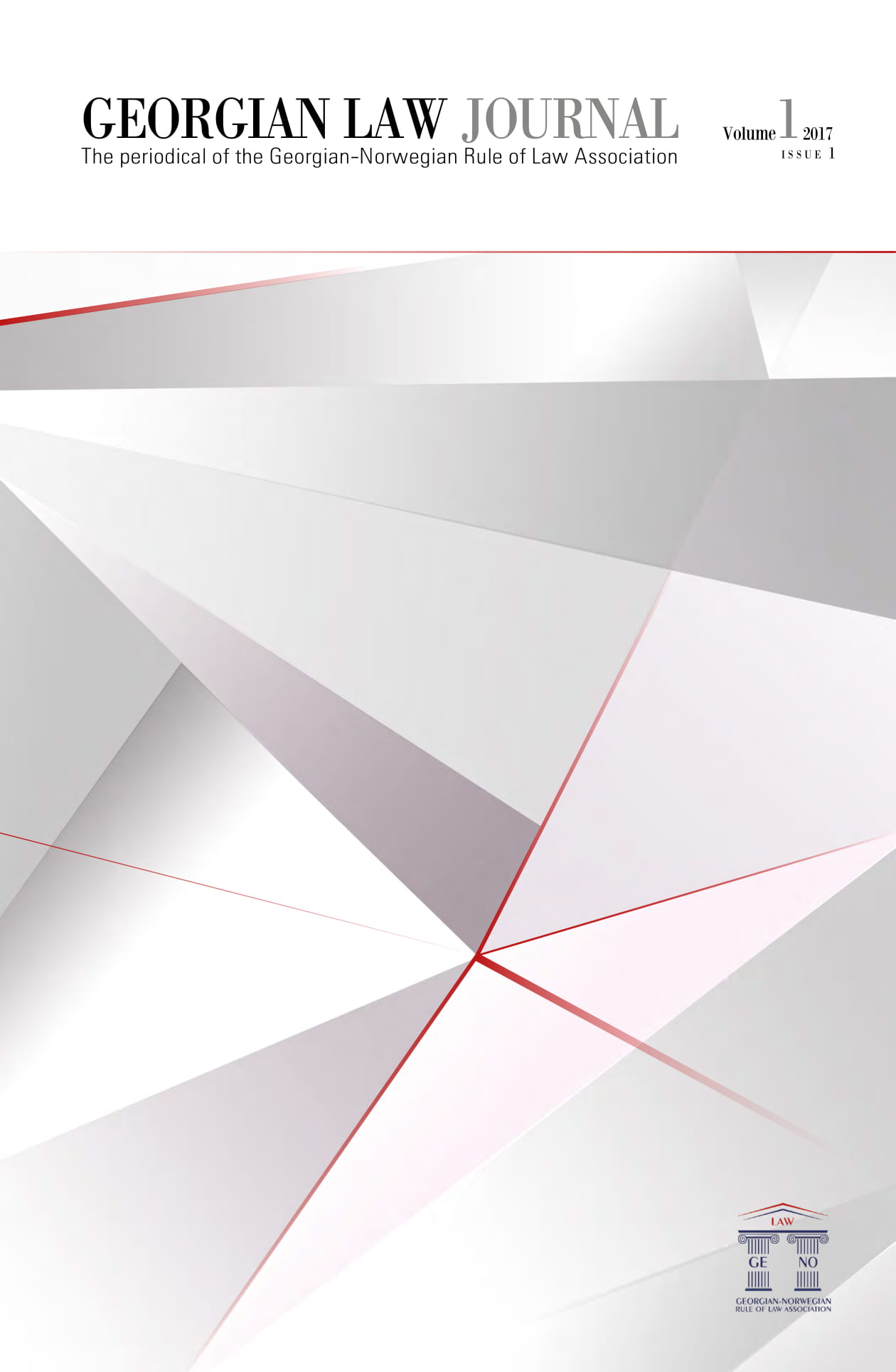In choosing the themes for this inaugural issue, we did our best to strike a balance between the papers received, their quality, and the diversity of issues addressed by them. Our final selection was also informed by our aim to promote the generality of the scope of the journal and consistent with our values as reflected in our mission statement.
The article by Vakhushti Menabde offers a general, yet, insightful overview of the developments concerning the ongoing major revision of the basic law of Georgia – the constitution. The media discourse on this revision often presents it as one that follows virtually countless revisions preceding it. This view is partly echoed by some popular perceptions of the process, asserting that every new parliamentary supermajority amends the constitution in line with its preferences. Be that as it may, the level of presence the issue has on the surface of Georgia’s internal politics since the original adoption of the constitution is telling in many ways. It shows that the political and, by extension, societal consensus on the core issues of Georgian state as an organized form of social coexistence between its residents is far from settled. This makes the whole process of revising the constitution even more important. It is thus hoped that the overview of the part of this process that has been accomplished so far will be an interesting read. George Svanadze’s article dwells upon some important aspects of how to establish greater synergy between domestic courts in Georgia and those in EU member states. It turns out that, while Georgia is a member of the Hague Conference on Private International Law (HCCH), it has still not acceded to a number of HCCH’s very important instruments that would facilitate strengthening judicial dialogue and cooperation with various EU jurisdictions. Though the article is concise, it presents an informative overview of the potential for making Georgia a more trustworthy and attractive jurisdiction for transnational commercial disputes. It ultimately provides excellent guidance on how to increase Georgia’s trade and investment potential by mitigating the risks of legal transactions in the eyes of foreign trade and investment partners through expanding judicial cooperation with EU national jurisdictions and beyond. The theme of making Georgia more attractive for adjudicating transnational commercial disputes, albeit in the light of arbitration proceedings, is continued in this issue with the article by Vakhtang Giorgadze. Offering a sketch of global practices in this regard, it also provides guidance on how to incentivize the choice of arbitration over litigation and thus make commercial dispute settlement in Georgia faster, more flexible and business friendly. The idea of transposing a general narrative of Georgia’s potential as another “bridge” between Europe and Asia into the specific area of international arbitration, subtly advanced in this article, is certainly a very commendable effort. The point on more flexible legal framework and a stronger pro-arbitration approach, developed by Vakhtang Giorgadze, among other questions, is scrutinized with a greater degree of precaution in the article by Teo Kvirikashvili. In addressing the issue of proper balance between ensuring the independence and thus viability of arbitration proceedings on the one hand, and their compliance with the basic public policy considerations of the national legal order on the other, this article deals with a complex question of an extent to which arbitral awards may be subjected to judicial review. In weighing the pros and cons of restrictive and extensive judicial review, it addresses a set of complex and interrelated problems such as the uniformity of judicial practice in this regard and the risk of corruption in case of sticking to onesize-
fits-all minimal review approach by the judiciary. Finally, Tamar Diogidze’s article on the contracts concluded off-premises offers a contribution to the ongoing discussions about the regulation of consumer rights in Georgia. It points out some striking gaps and deficiencies in the regulatory framework of this important part of consumer protection. By looking at the issue from comparative perspective and sketching the EU and some foreign national jurisdictions’ approaches to it, the article provides a set of suggestions for addressing those gaps and deficiencies. On the top
of its immediate value as a thoughtful analysis on the subject matter concerned, it is also a useful outline for a blueprint on approximating Georgian legislation with the EU regulatory framework in this specific part of consumer protection law. All in all, we hope that our readers will find this issue an enjoyable read. We are open for the readers’ comments and suggestions that can be submitted electronically to our e-mail address at editors@georgianlawjournal.org.
On behalf of the Editorial Board,
Teimuraz Antelava
Read more





Add Comment